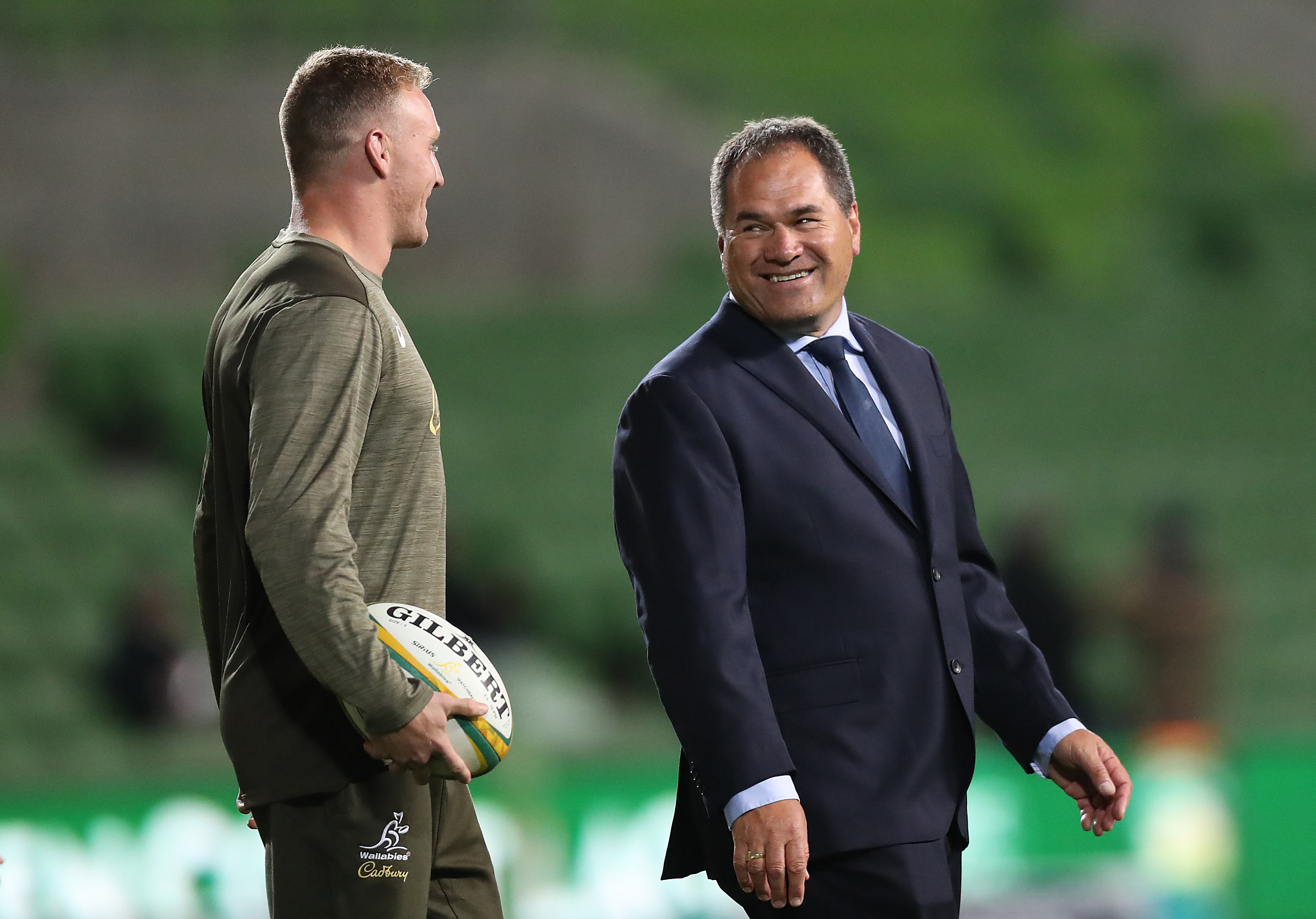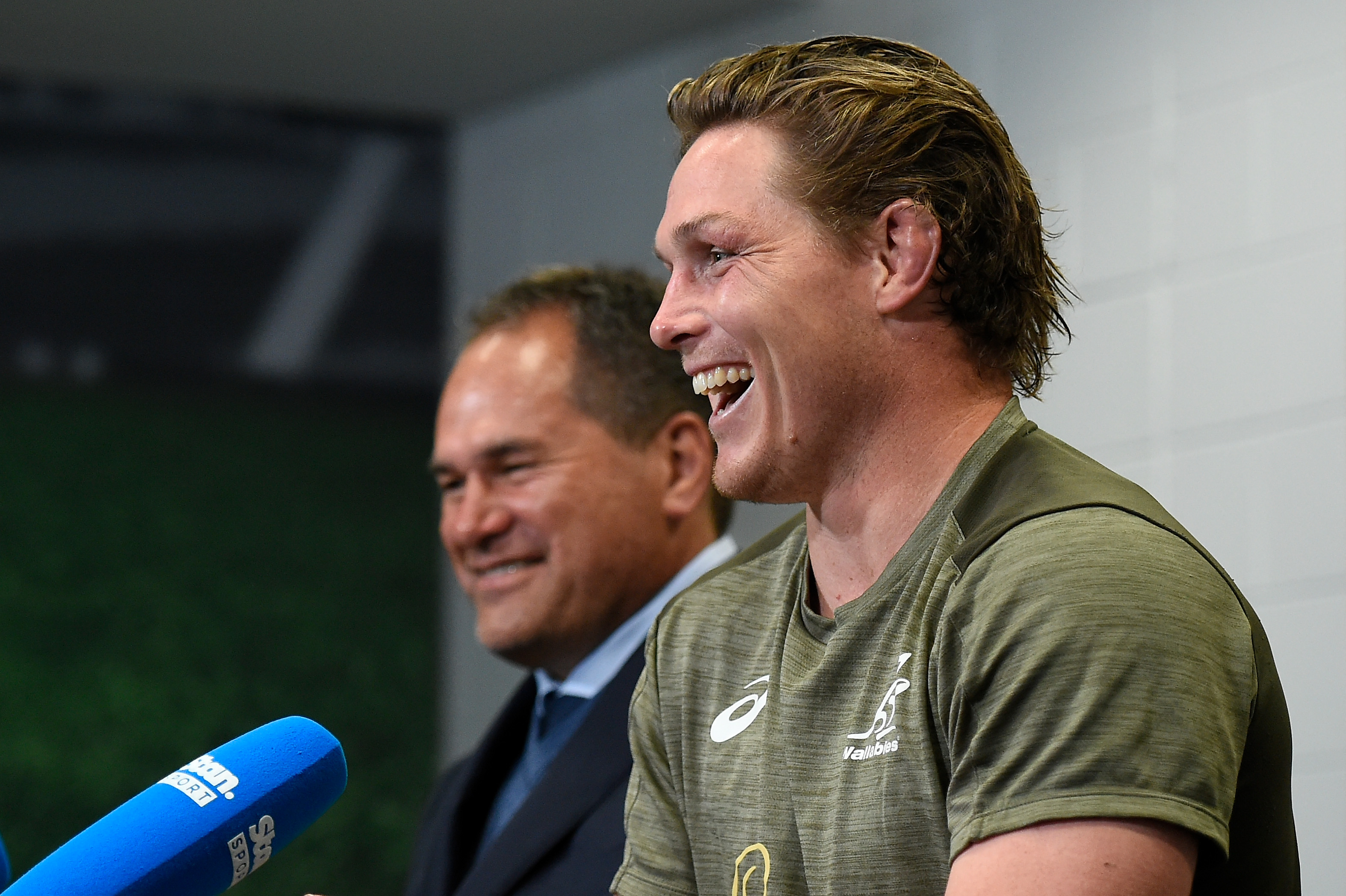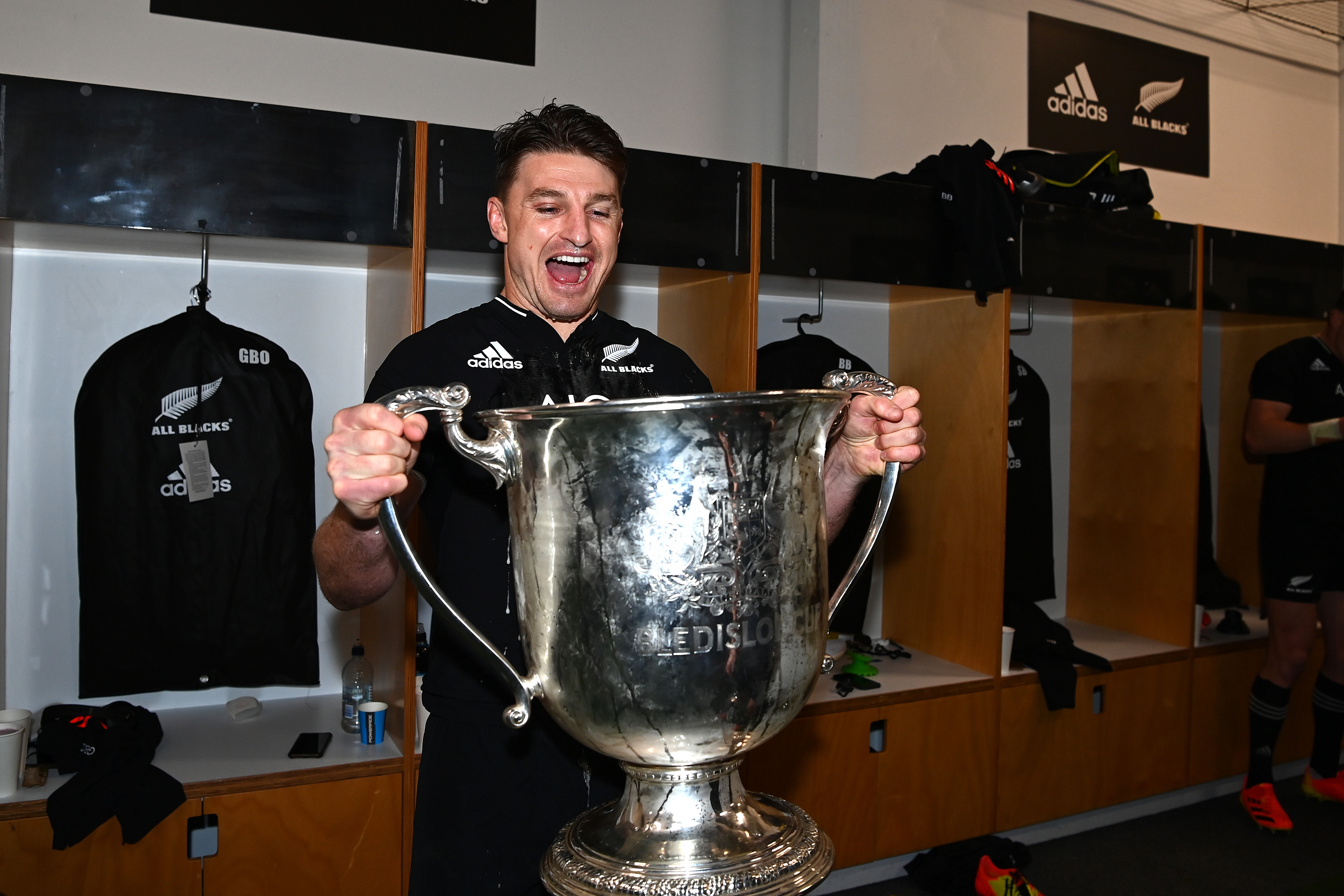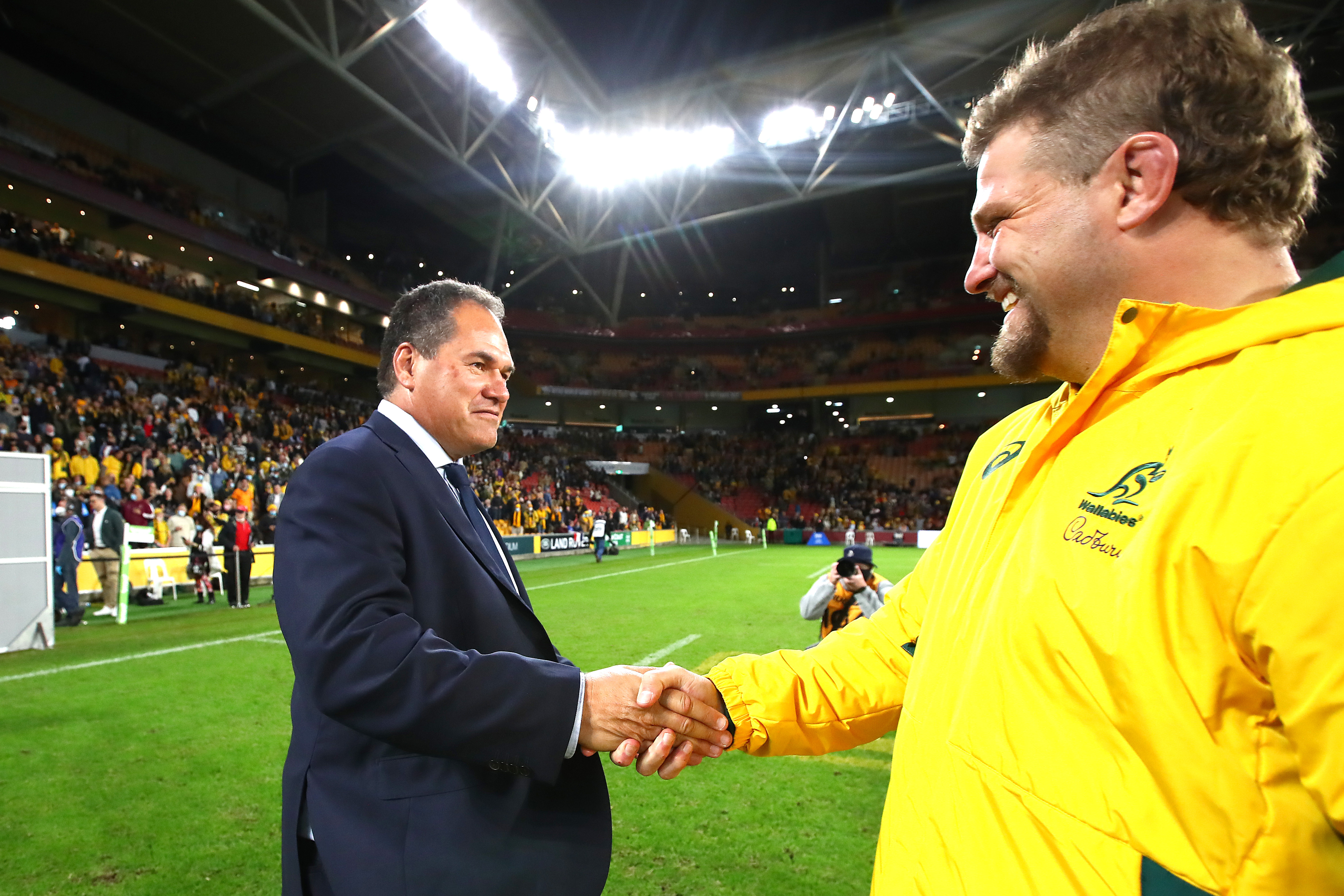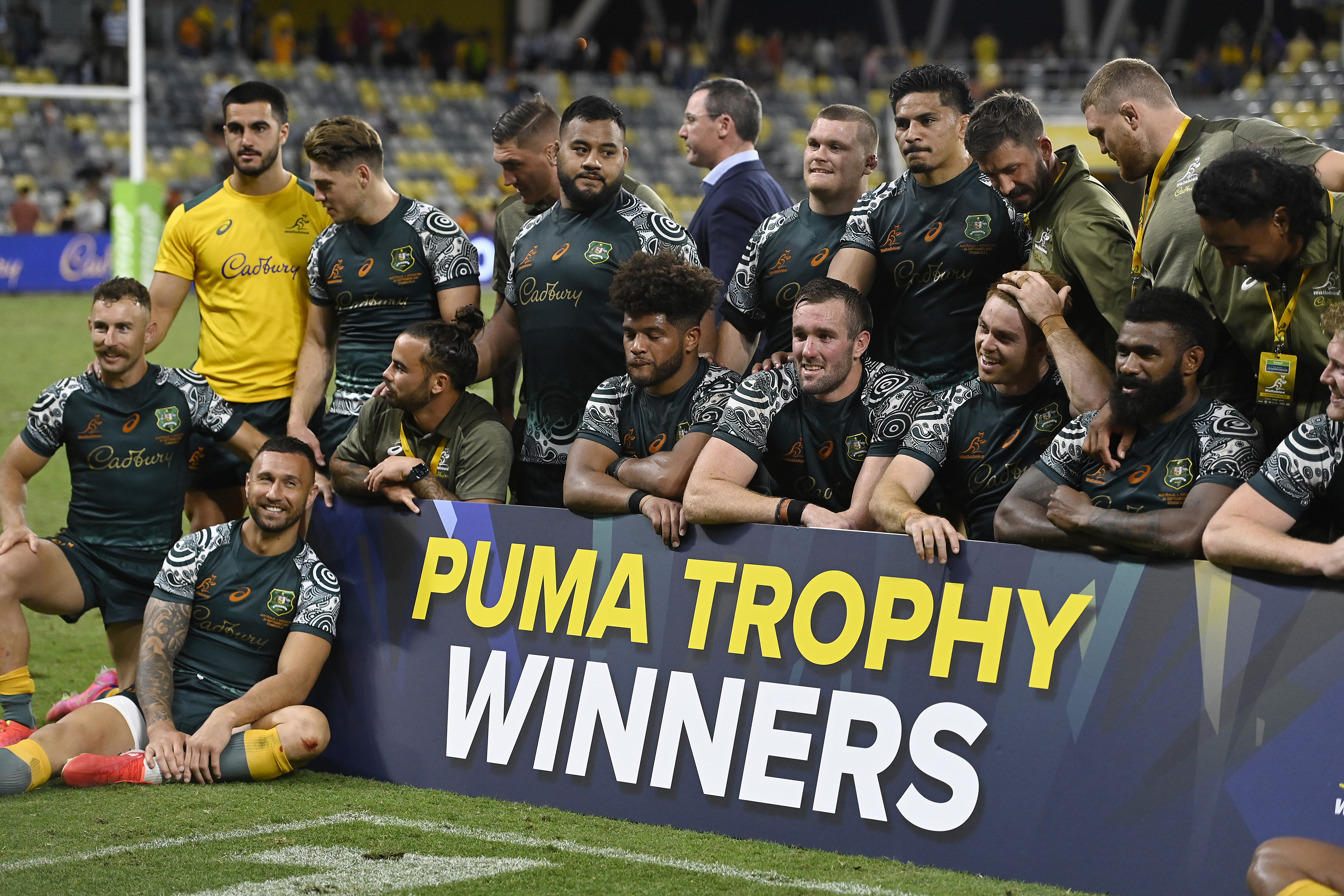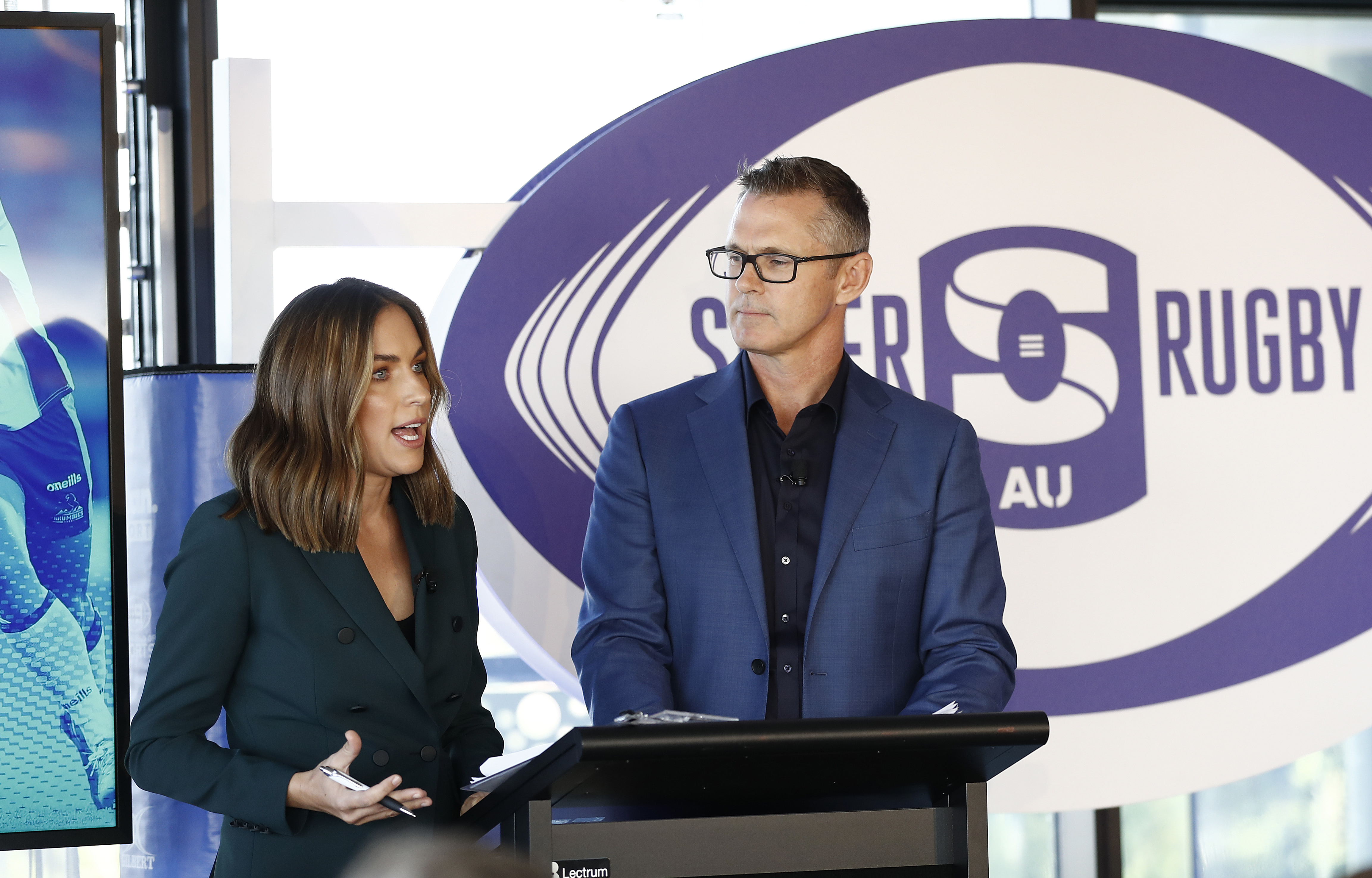In three weeks it’ll be 30 years since Nick Farr-Jones received the Webb Ellis Cup from Queen Elizabeth at Twickenham after Australia’s first Rugby World Cup win.
The quest for ‘Bill’ has become part of Australian rugby’s psyche.
Another win in ’99, runners up in ’03 and ’15.
And now a resurgent Australian team has us all dreaming again.
As we hit the halfway point of the current World Cup cycle, and after a much-improved domestic Test season, I sat down with Wallaby coach Dave Rennie to pick over the highs and lows, and to talk culture, belief and France 2023.
Stan Sport is the only place to watch Wallabies vs Japan on October 23 and All Blacks vs USA on October 24 – both matches streaming ad free, live and on demand on Stan Sport. Start your seven day free trial here!
NM: Dave, what was your goal for this season?
DR: Essentially it was to get better. We obviously want to be competitive with the best sides in the world and we knew we had a lot of shifts to make in our game. Skill sets getting better and the quality of our decision making, and game management. Defence has grown. We’ve got ourselves in a reasonable spot but we’ve got a long way to go. It’s about having clarity on the type of game we want to play and the type of athlete we need for that and the skill set required. We’ve tried to grow the group and I think our leaders are doing a really good job around that and driving the group.
READ MORE: Springboks captain reveals battle with alcohol
READ MORE: Waratahs sign Manly flyer in code switch gamble
READ MORE: Wallabies rookie tops player ratings from latest win
NM: How important is culture when you’re trying to build something successful?
DR: It’s probably a loose word culture. What does it really mean? We’ve put an emphasis on getting the guys to understand who they are and who they represent. Trying to get a genuine connection around that and understand that we’re playing for something bigger than ourselves. We’ve got a really diverse group. It’s multicultural and we’ve tried to connect with that and give guys the opportunity to share their culture with others and I think that’s helped us grow.
NM: Connection can mean a number of things and what’s clear from the number of Australians watching the game and the buzz about the sport is that Australians are reconnecting with your team. Are you feeling the love?
DR: You win a couple of Tests and things change a bit but we also know things can swing the other way. We’re trying to create a pathway for others to follow and the way you do that is by consistent high performance so that’s been a big part of our focus. We honestly believe if we want to get the country behind us we need consistent high quality performances and they want to see our boys emptying the tank week after week and if they do that people will respect us regardless of the result. We’ve made a start but it’s something that’s a big focus for us.
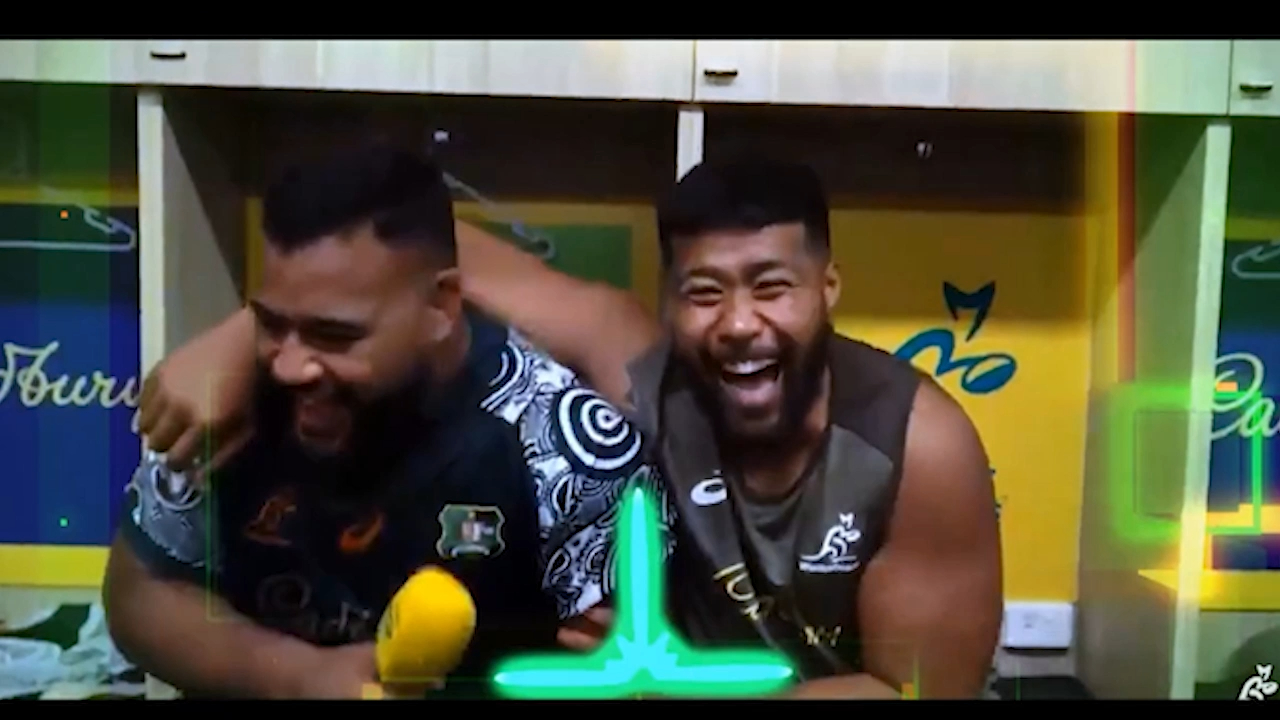
NM: So winning’s clearly important but is it almost more important to be a good group of humans first?
DR: It’s massive for us. We’re picking guys obviously on rugby ability but also on character. Winning’s important too, the idea is to be able to do both and if you get the right people who’ve got the right attitude and prepared to work hard and get better every day then you’ve got a chance of doing both. We’ve got a special group here. Good men and we’ve got a lot of young fellas who are learning quickly and learning the game at an international level and they’ve made good shifts so yeah that whole side’s important to us.
NM: Let’s talk about the French series. Why was that series and ultimately the result so important to you?
DR: Well it was a series against a really good team, and I know some say they left a lot of their stars at home but people are starting to understand the depth of French rugby. The best French players play in France. They’re not spread out around the world. They don’t play in New Zealand and they don’t play in Australia and they don’t go to Japan to chase money because there’s massive money in France. They’ve got 14 professional teams at the top level and 14 below that so the depth is amazing and that was always going to be a really good test for us. And to play three Tests in 10 or 11 days was going to be a test of our depth as well. It was an arm wrestle. We could have lost that series 3-0 or we could have won it 3-0. It was good for us because it showed we’ve got enough character to fight when the games get tight, and I thought it was a great series.

NM: And then you rolled into three Tests against the All Blacks. Tough Test matches.
DR: The thing with the All Blacks is we play a pretty similar game. We’re attempting to play a high-speed, high-skill game. They’re happy to defend and they’re not turning the ball over. That’s where New Zealand killed us. We created lots of opportunities and we played some good footy against New Zealand but not for long enough. At times when it looked like we were going to score we’d either turn it over or throw an intercept and New Zealand went 80 metres and scored and hurt us. I just think we’ve got to get better at what we do. We scored 10 tries against New Zealand. Not many would do that in three Tests. And we left a hell of a lot of tries out there. What we found was, we didn’t kick enough, so there’s times when we’ve exposed space in the back field and elected to keep playing and we got hurt from it. So we’ve made good changes around our understanding of when to kick and when to play.
NM: We’ll get the Bledisloe back one day won’t we?
DR: Absolutely.
NM: It seems like you find out your strengths and your weaknesses very quickly against New Zealand.
DR: As we learnt, you turn the ball over at your peril. We’re well aware we need to be better there but we like the fact we’re creating opportunities and once we got really quick ball against New Zealand and played on top of them we found a lot of space in behind. We’ve certainly got to be better but I feel it’s the right way to play against them based on the cattle that we have.
NM: Despite losing 3-0 to the All Blacks did you leave that series in better shape than when you started?
DR: I guess reflecting back we probably did. We’ve certainly made shifts in our game. We’ve got a group who’s got a better understanding of how we’re trying to play. We’re certainly way better conditioned now and I reckon we can foot it with the All Blacks from a conditioning perspective, and that’s vital. Their ability to run teams off their feet in the last 20 (minutes) has won them a lot of Tests over the last couple of decades. We’ve got to be clinical at key times and that was obvious against the All Blacks.

NM: And then the world champions South Africa. Two Wallaby wins blew us all away. Did you feel like you took some big strides against the Springboks?
DR: When we looked at South Africa, we were pretty excited because we felt that we could put them under a bit of pressure. We’ve got a game that we could profit off their kicking game. With the tempo we wanted to play at we thought we could challenge their big men and that we had a set piece that could be competitive. What was disappointing was we didn’t deal very well with their high ball and that was a big part of their plan. We knew they’d kick a lot. We thought we had a counter attack off that but they do it well.
I thought we played pretty well first Test. We kicked a lot of penalties but all based on pressure. What was a bit disappointing, we had four or five opportunities to pick ’em off with four on twos or five on threes and just had to get the ball out of our hands but their rush defence shut things down. Then the nice thing about the second Test was we were really clinical. When we got those opportunities, we finished. It was a pretty comprehensive performance in the end. They’re a very tough side, very strong up front, and we were good enough to be able to grab our opportunities.

NM: So here we are, halfway through a World Cup cycle. Aussies love to dream of World Cup success but as a coach you’re often more pre-occupied with the next task. Do you allow yourself a little look at the horizon sometimes?
DR: You’re right, as coach you always focus on the next game and the next enemy. That’s key. That’s why I’m often quick to put to bed the previous performance because I’m starting to look forward. Being clear on the next enemy is a massive part of it but we’re certainly trying to grow our group and there’s always talk about the World Cup. We’re mindful of areas that we need to create depth going into a tournament like that because you get a couple of injuries to key players and you can get exposed.
But there’s so much rugby to be played. We’ll head to Japan and then to Europe. It’s just exciting to see this group developing.
NM: So what are those targets for growth and development right now?
DR: We’re trying to grow game awareness. I think it’s massive. Handre Pollard called us street savvy. We are miles away from street savvy or where we want to be. But that whole game management side of things is massive. The ability to run down a clock, the ability to chew up time when you’ve got a decent lead and there’s five minutes left. Your understanding of how to win tight games and stay in it. You need to experience those situations. That’s why the French series was massive for us. That’s an important element and growing trust in each other. Develop our skill sets and our conditioning. Our structures in D and attack, but knowing how to win I reckon. Sometimes it’ll be ugly but you’ve got to find a way. It’s an area we’ve put a fair bit of time into and we’ve started to see benefit from it.
NM: Over the years we hear players talk about how much belief there is in a squad. But sometimes belief is displayed by actions in crunch moments rather than words in a press conference. Are recent results proof of belief in this group?
DR: Yeah, it’s not about what we say, it’s about what we do. I think our ability to implement things on Saturday has been better. We’re playing how we’re training and we haven’t always done that. We’ve got an understanding of how we can manipulate an opposition and you’ve got to be good enough to implement that. That’s been the benefit of Quade (Cooper) coming back in and Samu (Kerevi) coming back in – older heads in key positions who can help get us around the field. We’ve got a bunch of men, they’re very tight and there’s a lot of belief within the group. But we can be so much better. We’re constantly seeking perfection and know that we’re a long way from where we could be.
NM: We talk about trophies but is the motivation for the Wallabies right now more simple than silverware?
DR: Everything is about getting better, playing for each other, understanding the responsibility of representing this country. They’re key motivating factors.
NM: For the rusted-on fan and for those who’ve come back to the game more recently there’s a lot to get excited about.
DR: Four really tough Tests. Japan are such a strong side now. That’ll be a really good test for us then over to the UK in what could be challenging conditions and playing against sides who are prepared to kick a fair bit of ball and try to put pressure back on you. I suppose playing South Africa will have been good for us. Certainly I think Scotland will play a bit of footy and Wales, under Wayne Pivac, will play a fair bit more footy now. England are a quality side. It’s more opportunity for us to learn about each other.
Winning’s habitual. So is losing. We’ve worked really hard and we’ve prepared well over a number of weeks and everyone’s desperate to keep that going.
* Tomorrow, Dave Rennie takes us through some of the stand-out players in 2021, from rookies to veterans including the returning Quade Cooper and Samu Kerevi.

